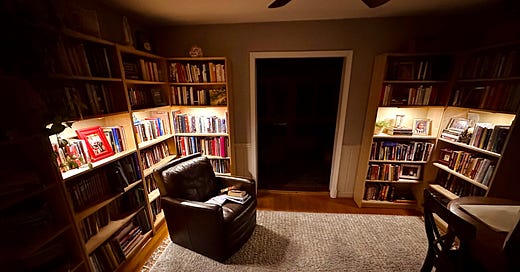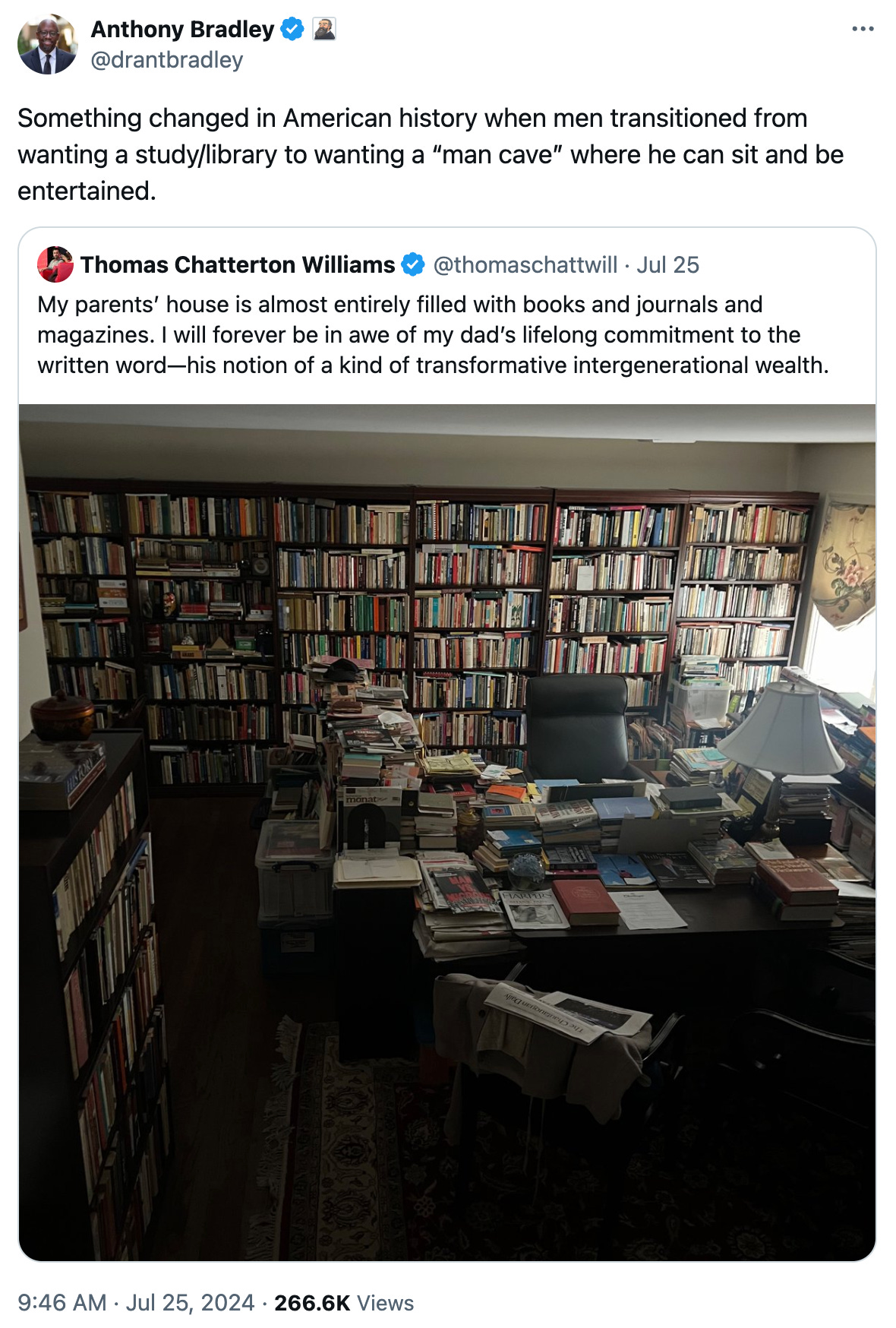Kids Need Mystagogy Not Pedagogy
"I wander’d off by myself, in the mystical moist night-air, and from time to time, look’d up in perfect silence at the stars."
Growing up, my family went to a small Lutheran church. My Dad had been a teacher at the school there and after the services I was frequently regaled with tales of his excellent teaching by former students. He made math and grammar fun, they told me. But the best stories were always about the history lessons when he would throw a huge pile of dirt onto a cardboard platter and tell the kids to build a medieval town replete with castle and moat. They still talked about it years later.
We moved my son to a fantastic boy's school in 3rd grade. We did this for many reasons, but one of the biggest was positive peer pressure. At the local parochial school the 4th grade boys were getting iPhones but at the new school the cool thing to do was memorize the longer poem. Anyway, on the second full day there the entire 3rd grade went out onto the soccer field in dress shirts and ties and learned from the rugby coach how to properly and safely tackle. Then the boys broke up into pairs and practiced.
Imagine the elation of an 8 year old boy who is not only allowed but encouraged to tackle at school during recess! The teachers had spun magic with this lesson. They were now adults the boys could listen to and trust and could show them interesting things. My son came home that day feeling powerful and excited. It made me think about the medieval fortresses in my Dad's classrooms.
In both cases, the students were filled with a sense of wonder. More to the point, this was the desired outcome from their teachers! The intent wasn't learning per se, it was wonder and excitement.
There's a beautiful word for this practice: mystagogy. Literally: "to lead through mysteries".
I'm ashamed to admit I'd forgotten the word for years until recently (shout-out: Luke Burgis). Mystagogy is also the name for the last part of the Catholic RCIA program and - since it's been nearly 20 years since I converted - hopefully it's understandable.
"The public has a distorted view of science because children are taught in school that science is a collection of firmly established truths. In fact, science is not a collection of truths. It is a continuing exploration of mysteries." -Freeman Dyson
The questions we hear about education today are mostly repetitive. How do we raise test scores? How much technology is needed in the classroom? What do we do to get kids to sit still and focus on multiplication? Is common core math better or should we memorize multiplication tables? Why aren't our students #1 internationally?
The entire educational policy conversation revolves around funding and pedagogy. On the one hand, education is big business and there's lots of money to capture. On the other hand, the system of learning is more important than the teacher. Education must be legible - as James Scott defines it - requiring governmental standardization.
“Education” may need more funding or more pedagogy, I don't know. But our kids need neither. They need more mystagogy. They need wonder-filled adults willing to guide them through the mysteries of reality. They need to feel awe and magic regularly and kindle the fire of their mind. Mystagogy is the raison d'etre for teaching.
The mind is not a vessel to be filled but a fire to be kindled. -Plutarch
Classical schooling is experiencing a well-deserved renaissance. It's more than just the COVID bump or the avoidance of the many pitfalls and problems of public schools. The classical curriculum is inherently filled with truth, beauty, and rationality - among other virtues - because the greatest thinkers of antiquity were concerned with these things. These subjects and texts gravitate scholars of all ages, instilling an ongoing sense of wonder. The more schools focus on mystagogy over pedagogy, the better the long term prospects of the students.
Cultivating curiosity and wonder should be elevated as primary goals. One of my favorite poems is Whitman’s When I Heard The Learn’d Astronomer. Our children need the facts and figures, but education has failed if it doesn’t also give them the ability to look up “in perfect silence at the stars.” Teachers should model this themselves. The best teachers are inevitably curious themselves and fascinated by what they teach. This is worth more than any Master’s Degree in education (which is rapidly becoming a requirement).
Kids need experiences to feel this sort of wonder. A pile of dirt in the middle of the classroom is just fun. Building things is exciting and fulfilling and it’s how you learn I the real world, as an apprentice building alongside someone more accomplished.
Classical, Christian, and Catholic schools have an advantage here, as mystagogy was a Greek concept first and has been adopted by Christian thinkers broadly and Catholic philosophy particularly. It’s something that we should focus on and lean into.
All of this applies as much or more to parents too. Thomas Chatterton Williams posted a picture of his parent's office and this response struck hard:
He's right. If fathers built libraries instead of man caves, letting their children discover them engrossed in a book in their favorite chair with a whiskey, we’d transform the world in a generation.





